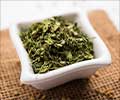Fenugreek - Frequently Asked Questions
1. What are the health benefits of fenugreek?Fenugreek has various health benefits, including improving blood sugar control, reducing inflammation, boosting testosterone levels, and aiding digestion.
2. How is fenugreek used for diabetes management?
Fenugreek may help lower blood sugar levels by increasing insulin sensitivity. Consuming fenugreek seeds or supplements can be beneficial for individuals with diabetes.
3. Can fenugreek help with weight loss?
Fenugreek's soluble fiber content can create a feeling of fullness, potentially aiding in weight management. However, it's essential to incorporate it as part of a balanced diet and exercise regimen.
4. Is fenugreek safe during pregnancy?
Pregnant women should consult their healthcare providers before using fenugreek, as it may stimulate uterine contractions. While it is believed to promote milk production in nursing mothers, caution is advised.
5. How can fenugreek be used for lactation and breastfeeding?
Fenugreek is often used to boost milk supply in breastfeeding mothers. It can be consumed in the form of supplements, tea, or added to food. However, individual responses may vary.
6. What are the potential side effects of fenugreek?
Common side effects include digestive issues like diarrhea or gas. Some may experience allergic reactions. It's advisable to start with a small amount to monitor individual tolerance.
7. Can fenugreek be used for hair growth?
Fenugreek seeds contain compounds that may promote hair health. Applying a fenugreek paste to the scalp is a traditional remedy believed to strengthen hair and prevent dandruff.
8. How does fenugreek benefit heart health?
Fenugreek's fiber content may help lower cholesterol levels, reducing the risk of heart disease. It may also have antioxidant properties that contribute to cardiovascular health.
9. Is fenugreek suitable for individuals with allergies?
Some people may be allergic to fenugreek. It's advisable to perform a patch test before using it topically and to consult a healthcare professional if there's a history of allergies.
10. How can fenugreek be incorporated into the diet?
Fenugreek can be added to dishes, salads, or consumed as a tea. It's also available in supplement form. Start with small amounts to assess tolerance and adjust based on individual preferences.
11. What is the name of fenugreek in Tamil?
In Tamil, fenugreek is known as "vendhayam" (வெந்தயம்)
12. What is the name of fenugreek in Hindi?
In Hindi, fenugreek is known as methi (मेंथी)
13. What is the name of fenugreek in Arabic?
In Arabic, fenugreek is known as حلبة (Hulba)
14. What is the name of fenugreek in French?
In French, fenugreek is known as Fenugrec
15. What is the name of fenugreek in German?
In German, fenugreek is known as Bockshornklee
16. What is the name of fenugreek in Spanish?
In Spanish, fenugreek is known as Alholva
17. What is the name of fenugreek in Italian?
In Italian, fenugreek is known as Fieno Greco
18. What is the name of fenugreek in Russian?
In Russian, fenugreek is known as Горчица горькая (Gorčica gor'kaja)
19. What is the name of fenugreek in Chinese?
In Chinese, fenugreek is known as 胡芦巴 (Húlúbā) or 芥菜子 (Jiècài zǐ)
20. What is the name of fenugreek in Turkish?
In Turkish, fenugreek is known as Çemen









